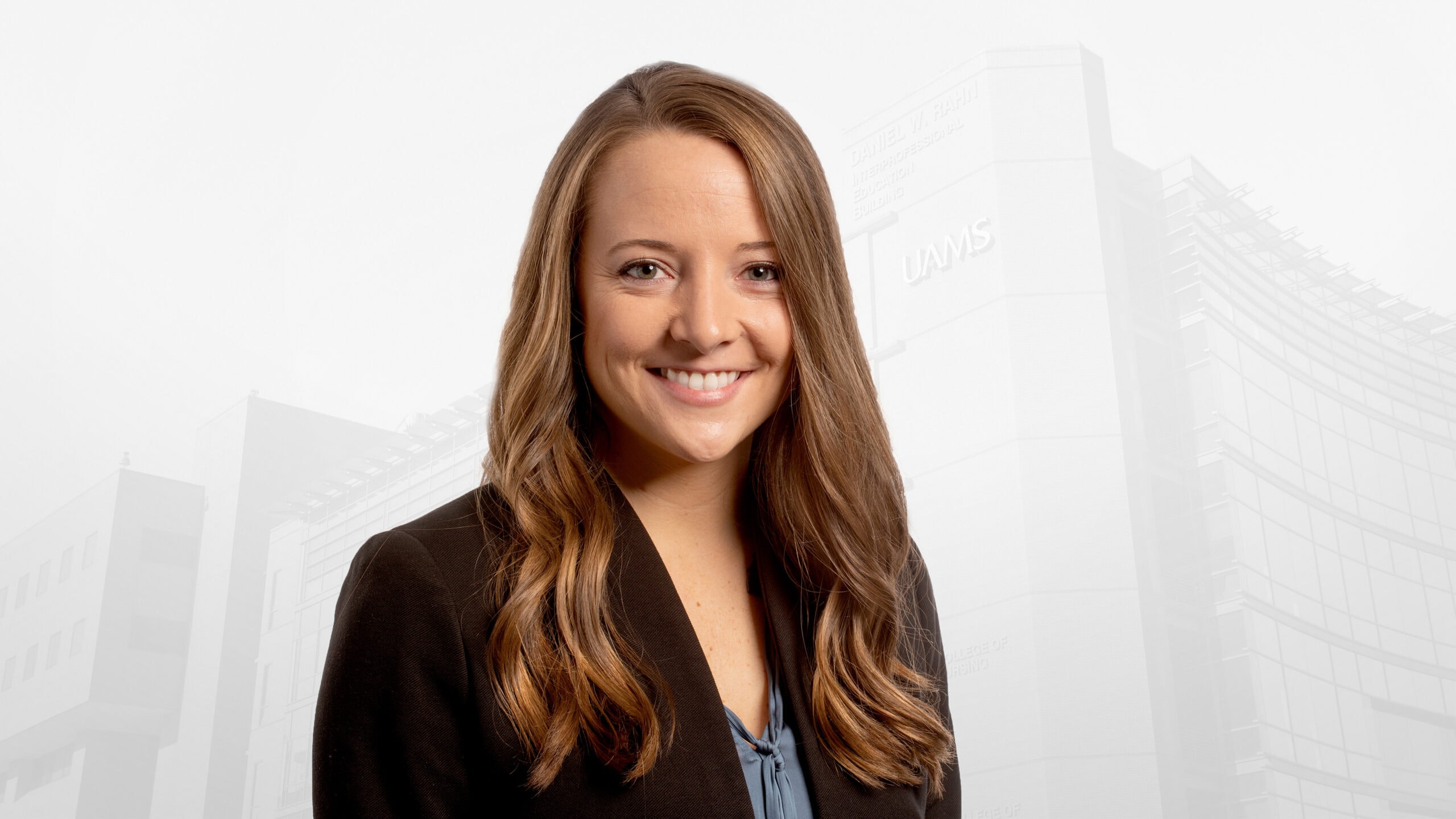Katy Allison, Ph.D., MPH, Receives KL2 Scholar Award
| Katy Allison, Ph.D., MPH, a research assistant professor in the University of Arkansas for Medical (UAMS) Sciences Fay W. Boozman College of Public Health Department of Health Behavior and Health Education, said she was grateful for being one of six people selected for the KL2 Mentored Research Career Development Scholar Awards Program.
The KL2 program is for UAMS junior faculty and is led by the UAMS Translational Research Institute. Through the KL2, Allison will receive two years of research support and training as she conducts her study, “Optimized Implementation Strategies to Support Pregnancy-Related Remote Patient Monitoring.”
The project will examine the potential of technology in helping to solve access to care issues for pregnant women — especially in Arkansas’ rural areas.
“I love the people of Arkansas,” Allison said. “It’s a personal and professional interest of mine to help Arkansas be a safe, quality place for women and their families to live.”
“Recently, I’ve become involved with research in the UAMS Institute of Digital Health & Innovation,” she said. “That research investigates the use of technology to reach people in areas where they may have difficulty accessing health care. I’m interested in using technology to find out how we can reach underserved women in Arkansas.”
Currently there’s not enough data available to explain what provider or clinic level barriers exist to using digital health technology to remotely monitor the health status of pregnant patients. Allison will seek to identify those barriers and strategies to overcome them.
“I want to make remote patient monitoring more accessible for pregnant women in rural areas of our state,” she said. “Arkansas has some of the worst maternal morbidity rates in the country. I want to address access to care for rural Arkansas communities like the one where my family is from.”
Allison also mentioned that the KL2 career development resources are important to the study. That includes mentorship from a team of UAMS faculty members, including Geoffery Curran, Ph.D., Jennifer Callaghan-Koru, Ph.D., and Hari Eswaran, Ph.D.
“Dr. Allison is ideally suited for success as a KL2 scholar,” Curran said. “She’s a hard-working and productive junior faculty member with excellent research training from her Ph.D., and postdoc. Since her postdoc, she has developed additional expertise in digital health interventions. I was her primary mentor during her NIH-funded postdoctoral fellowship. I look forward to the opportunity to again mentor Dr. Allison on her important work and career development.”
Additionally, Allison will have arranged networking opportunities, funding to attend research symposiums, up to 75% salary support, $25,000 a year for research, tuition, travel, and education. She can also take maternal health courses and trainings on efficient ways to implement digital health technologies to improve maternal health outcomes.
Overall, Allison deems the KL2 program as an exciting opportunity to focus on a study that will help her learn more about maternal health and how to improve implementation of remote patient monitoring in obstetric care.
“I’m eager to find ways to implement this technology that, right now, isn’t reaching enough of our rural population,” she said. “But when it does, I know that it can make an impact to improve maternal health care.
“That’s why this KL2 is a wonderful opportunity. There’s always more to learn. I’m grateful for this opportunity.”
